The wealthiest Americans have historically built their wealth on the backs of Black and Indigenous peoples. That wealth has passed from generation to generation and accounts for a large part of the money tied up in foundations. Not only that, but patterns in grantmaking have generally not supported communities of color in the US. The picture is honestly very ugly. (You can learn more about the racist roots of philanthropy here and here.)
In the face of all that, I’ve been encouraged recently by moves toward equitable grantmaking. (Of course, these moves are long overdue and certainly not enough, but they are a start.)
Today, I’d like to share some of what I’ve learned about the practice and discuss what it means for you and how we can push foundations to change their practices.
What is equitable grantmaking?
Equitable grantmaking is sometimes also called “trust-based philanthropy.”
In fact, one of the leading voices in the equitable grantmaking space is an organization called Trust-Based Philanthropy. They describe trust-based philanthropy as being “rooted in a set of values that help advance equity, shift power, and build mutually accountable relationships.”
They promote transparency and responsiveness, reduced paperwork requirements for grant applicants, and unrestricted, multi-year awards. You can read more about their work on their website.
This article from the Stanford Social Innovation Review also mentions grantmakers adopting an “equity lens” and responding to “global and political crises” as equitable grantmaking practices. In practice, this means reducing reporting requirements, recruiting board members that have been impacted by the equity issues the funder seeks to address (not just individuals who can make large financial donations), and funding work that addresses “service shortfalls” and “populations most at risk.”
In short, equitable grantmaking is about reducing the power disparity between grantmakers and grantees.
What this means for you
One of the tenets of equitable grantmaking is to reduce unfair and unrealistic burdens on organizations applying for funding. This might mean less intensive application and reporting requirements.
Equitable grantmakers are also generally more willing to offer renewal grants. The result for you is more stability and less scrambling to find and develop relationships with new grantmakers.
Ultimately, a shift toward truly more equitable grantmaking practices should mean increased funding for organizations led by people from the communities they serve.

How to find funders that practice equitable grantmaking
Whenever I write about grant search and evaluation or teach it in Grant Writing Made Easy workshops, I emphasize the importance of researching how well your organization aligns with a grantmaker’s funding goals and history.
But I want to expand this conversation going forward. Not only should you look into how well you fit their standards, you should evaluate how well they fit your standards. While not every foundation has adopted equitable grantmaking practices, more and more are. And when you do your initial communication with them and begin developing a relationship, I would encourage you to keep conversations open about what they require of you in return for funds.
The Stanford Social Innovation Review article I mentioned above also highlights some grantmakers who have adopted equitable grantmaking processes.
What are our next steps?
Many of the students in my Grant Writing Made Easy course are women of color, and I feel honored that they’ve chosen to learn with me. And I have a responsibility to advocate about the issues our GWME course community is affected by.
And although I would prefer a more radical wealth redistribution rather than the small and slow process of grantmaking, I know that we can push for change in the field together.
I’ll be continuing to study up on equitable grantmaking, and if you have thoughts, please reach out to me on social media. You can find me on Instagram here or join the Grant Genius Facebook group here. Let’s keep the conversation going.






